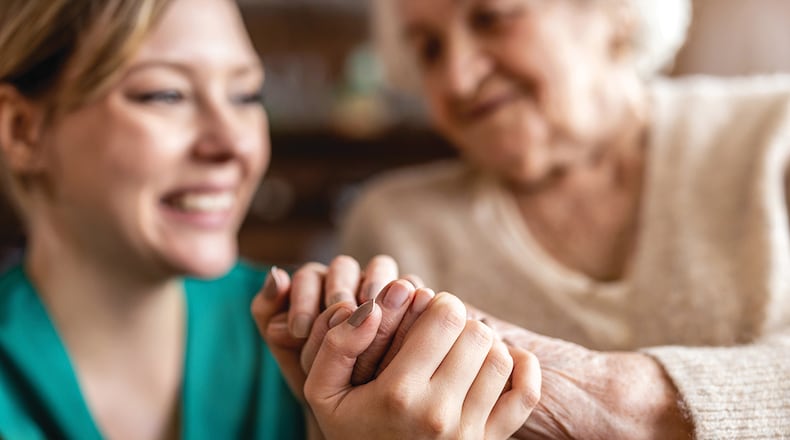AARP says home health aides are considered health care paraprofessionals and must meet established training requirements, which vary by location.
HHAs may perform various duties, including:
- assistance with personal care, such as dressing, toileting, feeding, and moving from bed to chair, etc.
- checking vital signs
- monitoring a client
- light housekeeping
- meal planning and cooking
- picking up prescriptions
- companionship
HHAs typically will not provide skilled nursing care and may not be able to offer recommendations on treatment or medications.
Individuals can find the services of HHAs who may work independently or are placed through agencies. Sometimes a doctor or hospital will have connections to HHA services and can make referrals. It can be useful to interview several potential HHAs to find one who will fit with the needs and personality of the person requiring assistance. A good HHA will be compassionate, patient and flexible. As illness or injury also can affect a person’s mood, HHAs must be able to adjust if a client is reluctant to receive help or is depressed or anxious from his or her limitations.
Home health aides serve vital roles in the health care community by providing care and companionship to those who can no longer live independently.
About the Author

